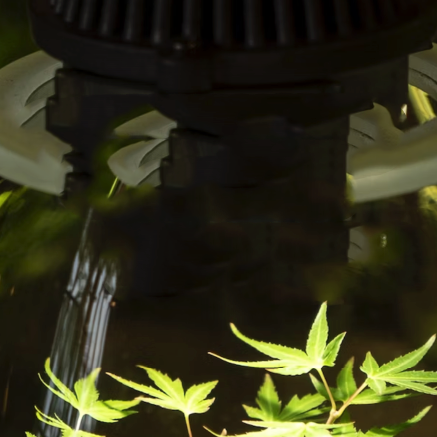Silicon (Si) is neither a metal or non-metal. It is usually described as a "metalloid" or semi-metal. It can exist as a shiny crystalline substance but it is never really found in this form in nature. Pure crystalline silicon forms a thin layer of oxide on its surface which prevents oxidation of the pure silicon beneath it. It is the second most abundant element in the earth's crust where it exists in compounds such as sand, clay, quartz and stone.
Silicon shares some properties with some other elements such as carbon and germanium in that it is something called a "semiconductor". Semiconductors are neither electrical insulators nor good conductors like a proper metals. They lie somewhere in-between. By mixing (doping) silicon or germanium (another semiconductor) with other substances they can be made to have some very interesting electrical characteristics.
By joining differently doped types of semiconductor in certain ways, these electronic devices (called transistors and diodes) can be made to perform electronic switching and amplification. This is why silicon is used extensively for making these components, and hence computer chips (which are built with hundreds of millions of microscopic versions of them). Silicon also has lots of other uses. It is used in a variety of applications from glasses and ceramics to specialist "silicone" sealants and lubricants.
Although Silicon is not classed as an essential plant nutrient, if it is available in the root-zone then many types of plant will uptake it and and put it to good use. There are some plants that don't even develop properly if it is completely absent. In many plants it can produce some or all of the following benefits:
- Increases cell wall strength
- Increases stem thickness and strength
- Increases photosynthesis
- Increases final yields
- Increases resistance to biting insects and some diseases
- Can delay the onset of fungal infections
- Improves drought tolerance and regulates water loss through leaves.
- Increases number of flowers and fruit-sets in some plants such as tomato
- Can reduce the toxic effects of too much of certain elements such as aluminium, copper, manganese, zinc and others
- Reduces stress caused by external environmental (abiotic) factors
It is not very common for silicon to be in excess for plants. If the particular plant variety uptakes and uses silicon, it will tend to limit how much it accumulates. However, silicon compounds, such as potassium silicate, can be very alkaline. If the root-zone pH is too high, it will affect the plants' ability to take up certain nutrients (such as iron, manganese, copper & zinc) which can then cause the effects of deficiencies. When using most silicon additives it is important to measure and adjust the pH of the nutrient solution before applying it.
At One Stop Grow Shop, we think that if you do not use a quality silicon additive in your grow then you are really missing out. By using silicon you are almost guaranteed to get thicker and stronger stems and much tougher plants overall. It is likely that your yields will increase too!
There are quite a few quality silicon additives to choose from. It is important to remember that most of these additives will increase the pH of your nutrient solution and therefore the grow medium unless it is adjusted before watering the plants with it. However, here are 3 examples of ones that don't affect pH:
- Buddhas Tree Solar Green Power
- Advanced Nutrients Rhino Skin
- Aptus Regulator
No matter which silicon additive that you use, it is very important that it's added to the water first and mix it in very well before any nutrients are added. If not, the undiluted silicon can combine with some of the nutrients and they will then fall out of the solution. So, after mixing in the silicon very well, test the pH and adjust it to just below 7.0 if necessary. Then, and only then, add your other nutrients and any boosters.
